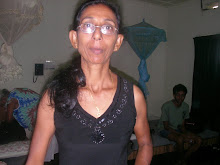


Hendrik Bulthuis
Hendrik Bulthuis (1865-1945), was a Dutchman, customs official, author, and translator of more than thirty works. One of his novels, Idoj de Orfejo (Children of Orpheus) is listed in William Auld's Basic Esperanto Reading Hindrik Jan Bulthuis (bulthoys), Dutchman, customs officer from 1889 until 1924, now in a pens. (retired??) Born 15 September 1865 in Warfum, Groningen (northeast Netherlands). In his youth he was a Volapükist, in 1899 he received a diploma in V. as a master teacher (eo:ĉefinstruisto). In 1901 D. Uitterdijk sent him a textbook of Esperanto, after which he became an Esperantist. He engaged in much correspondence with Esperantists of other countries, did much Esperanto publicity, especially in The Hague, taught courses, and served as the secretary of the examinations committee from its establishment until the present. From 1910 on L. K. In latter years he worked only for Esperanto; as a novelist (of works originally in Esperanto), a translator and author of small booklets, B. has been one of the most enduring workers in Esperanto. Starting in 1907, when his translation from French of Two Tickets (Du Biletoj) by Florian appeared, he published 35 books and brochures. Never is Better than Late, a comedy translated from English, seemingly his first printed work, appeared in the lit. appendix of L. I. (International Language) in 1905. He became known mainly for a trio of original works. The Children of Orpheus, 1923, despite some implausibilities, marked its author as a clear stylist and a person of outstanding storytelling talent. It still remains perhaps the most popular of his magnum opi. That was followed by the naively simple Joseph and Potifer's Wife, 1926, and The Fuzzy Hand, 1928, an intimately aware picture of Dutch peasant life, in which B's inclination for non-veresimilitude is still evident. Next in importance are his grandiose translations: the strangely chosen The Lion of Flanders, 1929, out of the Flemish of Conscience; the thematically heavy but well translated Emperor and Galilean, 1930, from the Norwegen of Ibsen. Both of thes works were crowned by the Academy. Jane Eyre, 1930, from the English of Ch. Bronte survived a careless translation well enough to remain an interesting story, thanks to its essential value. There also appeared in 1926 The Little John (La Malgranda Johano) from the Dutch of van Eeden. As a poet B. published only The Two Ships (La Du Sxipoj), 1909, for which he received a prize from Barcelona. For the Theatre in 1908 he wrote the praised (?) Uncle from America (Onklo el Ameriko), 1922; a drama Poor in Spirit (Malricxa en Spirito) and, from the German, translated Salome, 1910, a drama by the Englishman, Wilde. Worth mentioning from his other works are: the translations Diary of a Village Clerk, 1921, and Josepha, 1922, both from the Danish by Blicher; and in 1921 Character, from the Dutch by Luiscius (that work has also appeared in Finnish, Czech, Italian, Catalan, all translated from the Esperanto text.) His nine school readers, mostly for little Dutch children, and his retelling for youth of Robinson Crusoe, were conscientiously done. Presently, B. is translating: Don Quixote from Spanish and is writing another novel for youth. The most extensive commentary on B's works is by Nekrasov, who wrote extensive critiques of both his original novels from a Marxist viewpoint for the ante-schism "La Nova epoko" (The New Epoch) (Oct. 1929-Feb. 1930) and for the post-schism "La Nova Etapo" (The New Stage) (1932). That was too tendentiously Marxist to encounter general agreement. B.'s language style is simple, classical, without ornamentation. One can hardly find in it attempts at "impressionistic" experiment. He is more correctly called a weaver of stories, than a conscious "evolver" of our language. R. Banham.
Works
Original
His original novels (in Esperanto) were:
Idoj de Orfeo (Offspring of Orpheus) (1923)
Jozefo kaj la edzino de Potifar (Joseph and Potifer's Wife) (1926)
Inferio (Land of Hell)
La Vila Mano (The Fuzzy Hand) (1928)
His original plays (in Esperanto):
Malriĉa en spirito (Poor in Spirit)
La Onklino el Ameriko (The Aunt from America) (1922)
A collection of poems:
La Du ŝipoj (The Two Ships) (1909)
Translated into Esperanto from various languages
Les Deux Billets (eo:Du biletoj(1907)) by Florian. Translated from French.
Never Better than Late A comedy play translated from English.
Salome (1910) by Wilde. Translated from a version in German.
Character (eo:Karaktero (1921)) by Luiscius. From Dutch.
The Rector of Veilbye (eo:Taglibro de vilaĝ-pedelo (1921)) by Blicher, From Danish.
Josepha (1922) by Blicher. From Danish.
Little John (eo:La Malgranda Johano (1926)), a very popular work in Dutch literature by Van Eeden. Translated from Dutch.
The Lion of Flanders (eo:La Leono de Flandrujo (1929)) by Hendrik Conscience. Translated from Flemish.
Jane Eyre (1930) by Charlotte Brontë. From English.
Emperor and Galilean (eo:Imperiestro kaj Galileano (1930)) by Ibsen. From Norwegen.











No comments:
Post a Comment